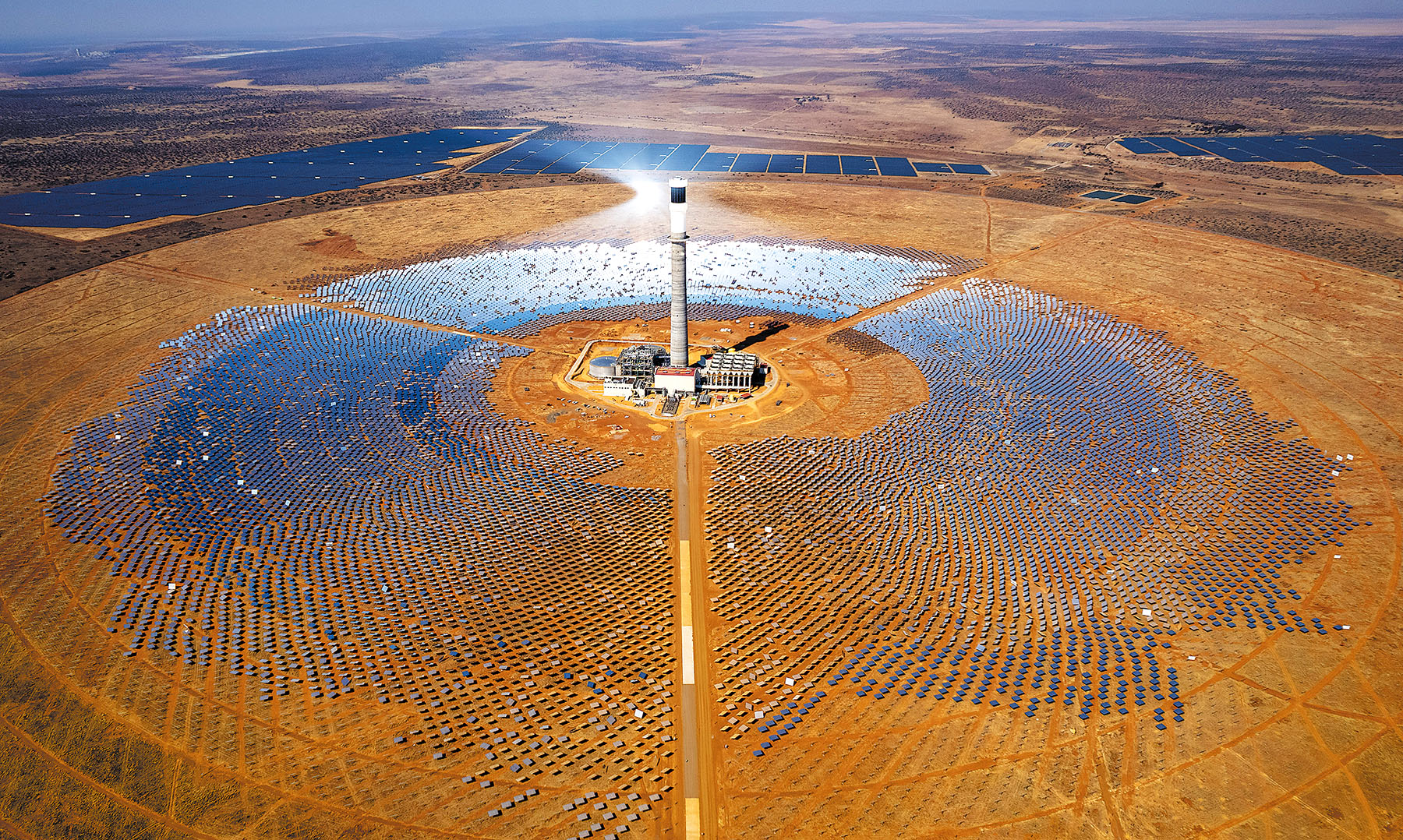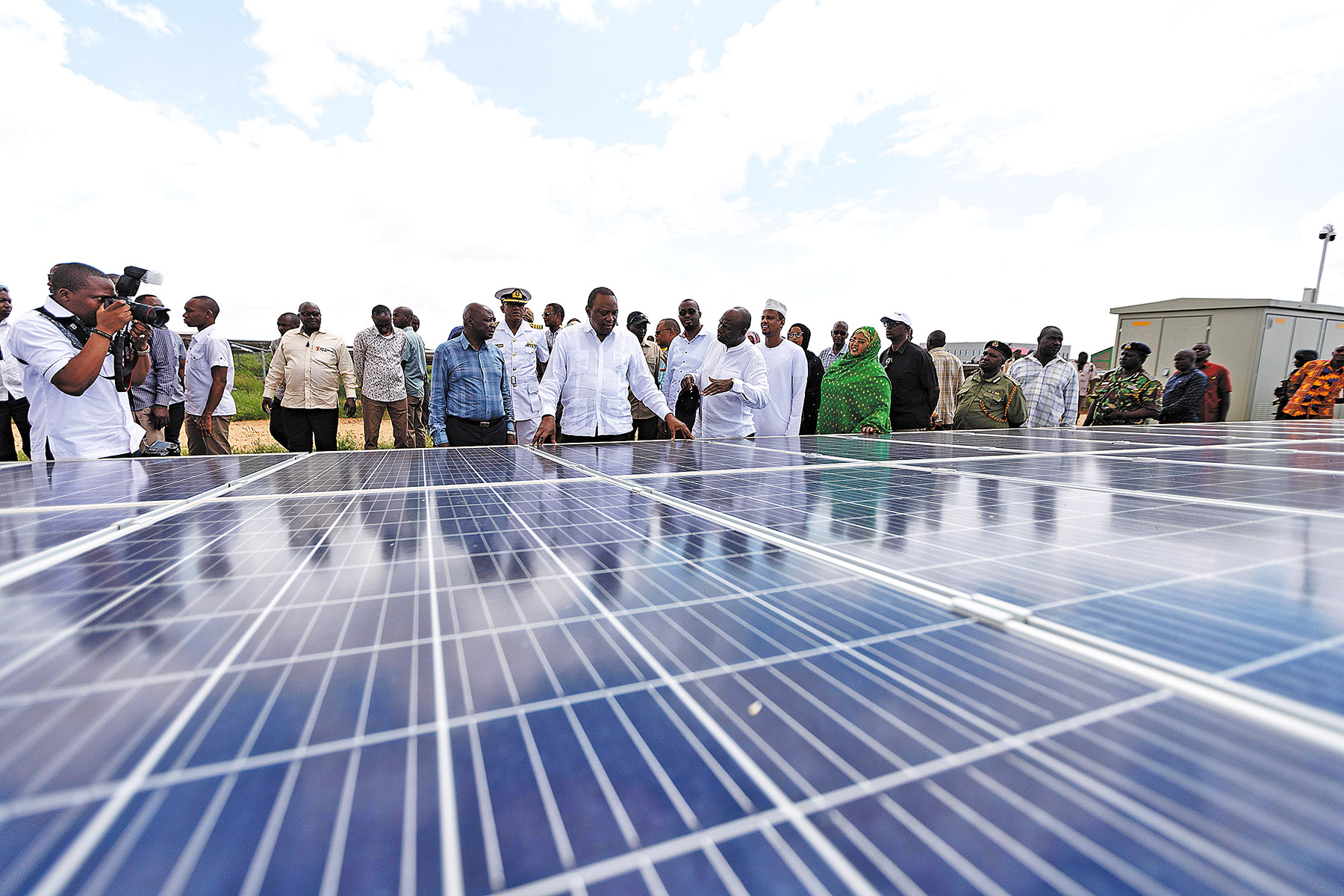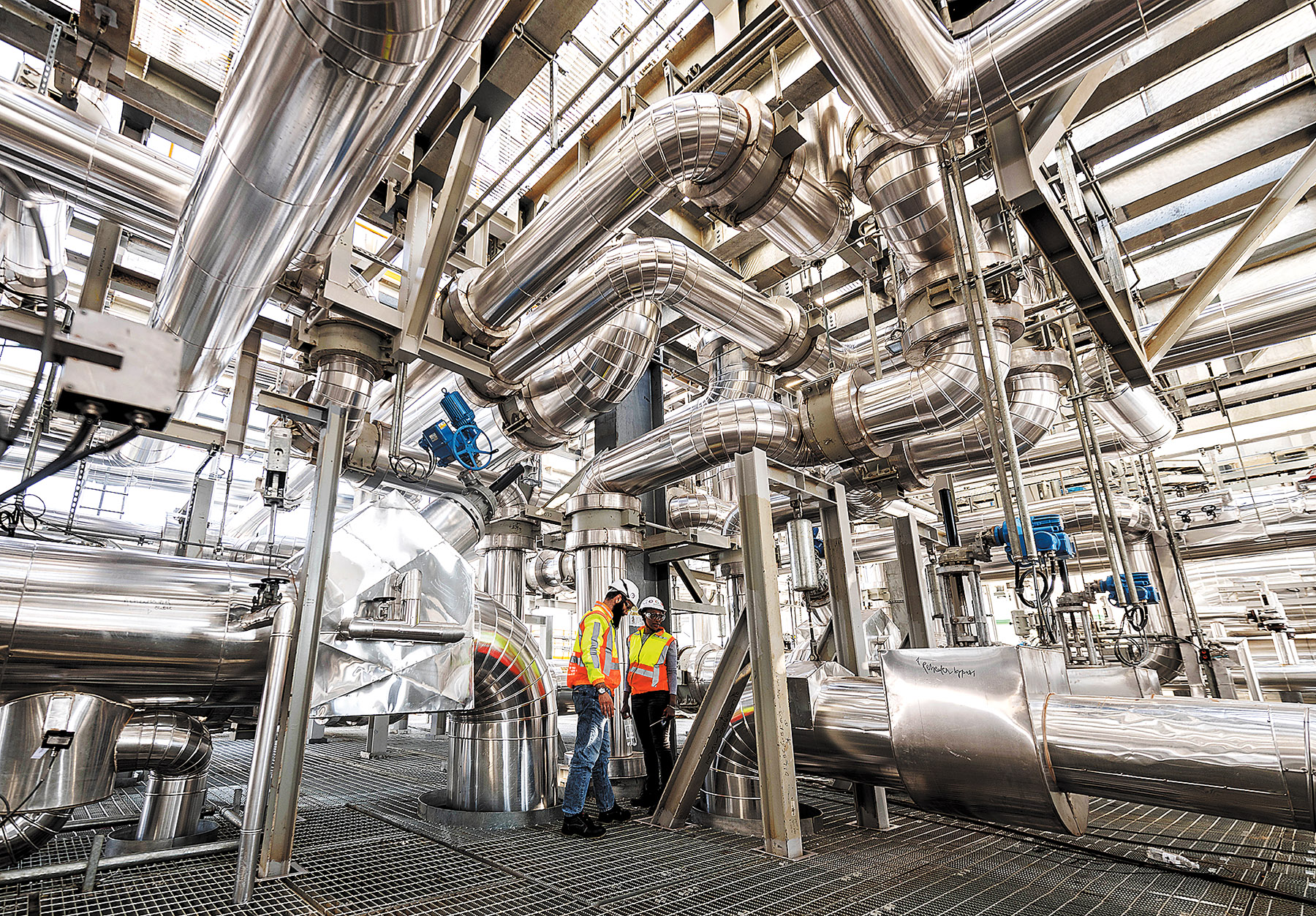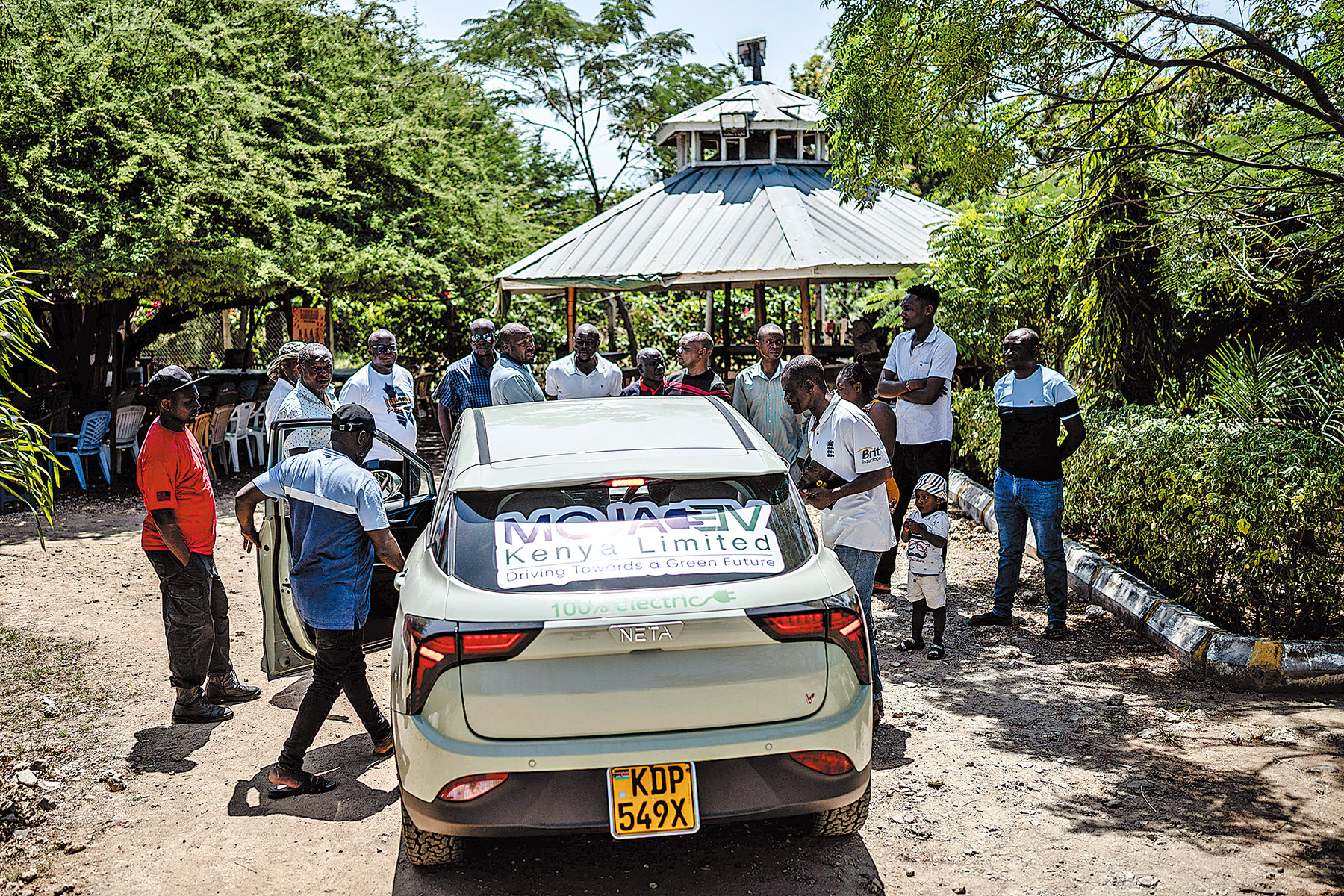Rich experience, new technologies provide continent with clean energy

As Africa looks to solar power to drive its renewable energy development, cooperation with China and drawing on its expertise is playing an increasingly vital role, industry experts said.
Chinese companies in the photovoltaic energy sector have rich experience and advanced technologies, which have helped deepen cooperation between China and Africa, said Nivedh Das Thaikoottathil, senior analyst in the renewables and power department of global consultancy Rystad Energy.
Expanding electricity access is crucial for boosting economic opportunities and people's quality of life in Africa. China is not only the global leader in installed capacity and power generation, but is also the world's largest producer and supplier of solar cells and modules, which aligns perfectly with the continent's needs, she said.
READ MORE: Collaboration transcends economic development
In the past, China's energy investments in Africa have primarily focused on large hydropower and coal-fired power projects. However, in recent years there has been a shift toward solar power projects, she added.
Chinese investments in Africa's renewable energy sector grew at an average annual rate of 26 percent from 2010 to 2020, with solar, hydropower, and wind the leading technologies, according to Rystad Energy.

Kenya pioneers efforts
The Chinese-constructed 50-megawatt Garissa solar power station in northeastern Kenya is the largest PV power project in East Africa. Since it began operations in 2019, the solar power plant has generated over 76 million kilowatt-hours annually, meeting the electricity needs of 70,000 households and more than 380,000 people.
Built by the China Jiangxi Corporation for International Economic and Technical Cooperation in conjunction with Kenya's Rural Energy Authority, the project has not only freed local residents from frequent power outages but also promoted local industrial and commercial development, creating numerous job opportunities, said the company.
It has also made Kenya one of the biggest investors in renewable and clean energy as it is home to the largest grid-connected solar power plant in East and Central Africa.
As it strives for renewable energy development, the station has helped Kenya save about 24,470 metric tons of standard coal and reduce carbon dioxide emissions by approximately 64,000 tons annually.
Chinese photovoltaic companies can provide high-quality and competitively priced PV products in Africa, said Wang Jifeng, deputy general manager of JinkoSolar in the Middle East and Africa. They have advantages through excellent technology and product strength and are also a leading global presence, Wang said.
Chinese solar companies, in addition, have established comprehensive marketing systems, excellent local teams, and efficient after-sales services over the years. These efforts have enabled them to meet the growing energy demands and diverse application scenarios in the African market, he said.
Since 2021, Longi Green Energy Technology, for example, has directly supplied over 1 gigawatt of PV modules to more than 30 African countries. These modules are used across various sectors including national power grids, industry, commerce, agriculture, hospitals, schools, and public utilities.
In addition to exporting PV modules, Longi has also been stepping up collaboration with educational institutions to provide training in new energy.
The International Energy Agency forecasts that solar photovoltaic energy will comprise 47 percent of the technology's mix for mini-grids and off-the-grid systems power generation in sub-Saharan Africa by 2040, an indication that Kenya is on the right track.

Projects spread
The Garissa solar power station is not the only project of its type being built through cooperation with Chinese companies. Many similar China-Africa cooperation PV projects are located across the African continent, a region that is endowed with large solar resources.
China Electric Power Equipment and Technology recently signed a memorandum of understanding (MoU) to develop a 10-GW solar energy project in Egypt, which aims to boost renewable energy capacity and reduce reliance on fossil fuels in the country.
The completed project will be able to generate nearly 30 terawatthours of electricity per year. The project, which is part of Egypt's Green Corridor initiative dedicated to renewable energy development, will also save $1 billion in annual costs of natural gas.
In recent years, a growing number of Chinese companies have come up with high-quality and affordable PV products in African countries, industry experts said. Investing in and constructing PV power plants in multiple African countries has also boosted local economies and provided reliable and low-cost electricity.
China-Africa cooperation in solar energy development and utilization has continuously made new progress, said Mao Xiaojing, director of the institute for West-Asian and African studies under the Beijing-based Chinese Academy of International Trade and Economic Cooperation.

Powering the future
Energy shortages are a common issue faced by many African countries. By 2030, 660 million people worldwide will be without electricity, most of whom live in the sub-Saharan region, according to an International Energy Agency report.
Africa possesses abundant renewable energy resources, with solar, wind, and hydropower reserves accounting for 40 percent, 32 percent and 12 percent of global reserves respectively, and offering enormous potential for renewable energy development.
Data released by the International Renewable Energy Agency (IRENA) showed that between 2011 and 2020, Africa's solar installed capacity achieved an annual growth rate of 54 percent, which is two and a half times that of wind energy, nearly four times that of geothermal, and almost 17 times that of hydropower.
"Currently, solar energy is the fastest-growing renewable energy in Africa and has become a key area of China-Africa clean energy cooperation," said Mao.
China and African countries are continuously innovating cooperation models in the field of solar and other clean energy to better adapt to the current economic and social development of Africa, Mao added.

Complementary resources
China's advantages in the renewable energy industry chain complement Africa's natural environmental endowments, Mao said, adding this opens up vast room for China-Africa cooperation in solar energy development and utilization.
In recent years, China's PV industry has developed rapidly and formed the world's most complete PV industry chain with multiple advantages in technology, cost, and scale. China is also the global leader in equipment manufacturing and engineering services related to PV applications, including energy storage and power transmission and distribution.
Africa's advantages stem from regions possessing abundant sunshine, giving it some of the richest solar energy resources globally, she said.
Many African countries regard the development of solar and other clean energies as crucial for addressing power shortages and promoting energy transition.
According to Kenya's Vision 2030, the country aims to achieve 100 percent clean energy power generation by 2030. South Africa has proposed increasing the proportion of clean energy, such as solar power, in its energy mix from the current 7 percent to 40 percent by 2030. The construction of clean energy projects in Ethiopia, Uganda, and other countries is also progressing steadily.
China-Africa clean energy cooperation has effectively improved the power supply shortage situation in African countries and provided strong support for Africa's climate change response and green transition development, said Mao.
According to the IRENA's African renewable energy market report, the continent has about 7,900 GW of solar PV technical potential. As Africa's economic and social development and industrialization advance, local electricity demand will continue to grow.
Lin Boqiang, head of the China Institute for Studies in Energy Policy at Xiamen University, said the rapid economic development in Africa in recent years has also led to a practical demand for energy transition, providing momentum for the continent's development of renewable energy.
Developing solar energy in Africa can help eliminate "energy poverty", reduce greenhouse gas emissions, create green jobs, and improve the living conditions of local residents, he said.
"Africa has benefited immensely from China's growing green energy industry, especially affordable green energy products like solar panels and batteries, as Chinese renewable energy technologies are cost-effective, highly applicable, and well-suited for African conditions," he said.
ALSO READ: Xi: Jointly advance modernization with Africa
"Strengthening Sino-African renewable energy cooperation not only enhances Africa's sustainable development capabilities but also helps bridge Africa's technological gaps in related fields. Through each cooperation (effort), African countries have learned advanced technologies and management experiences from China."
In the future, China can leverage its advantages in photovoltaics, batteries, and mobile payments to not only supply equipment to African countries but also become developers and operators of PV projects. This commercially oriented approach will inject more vitality into Africa's economy, he added.
According to Mao, in addition to existing forms of cooperation such as aid, trade, equipment supply, project contracting, and enterprise investment, China can explore more cooperation with African countries in solar energy development and utilization.
By strengthening technical exchanges, sharing development experiences, and increasing financing support, new spaces for cooperation can be opened up, she said.
Africa is also rich in other renewable energies like wind, geothermal, and green hydrogen, which are areas where China and African countries can conduct more pragmatic cooperation.


